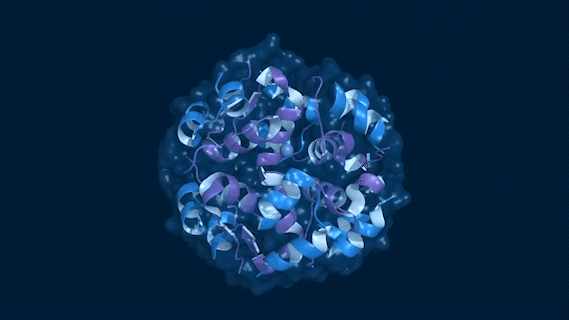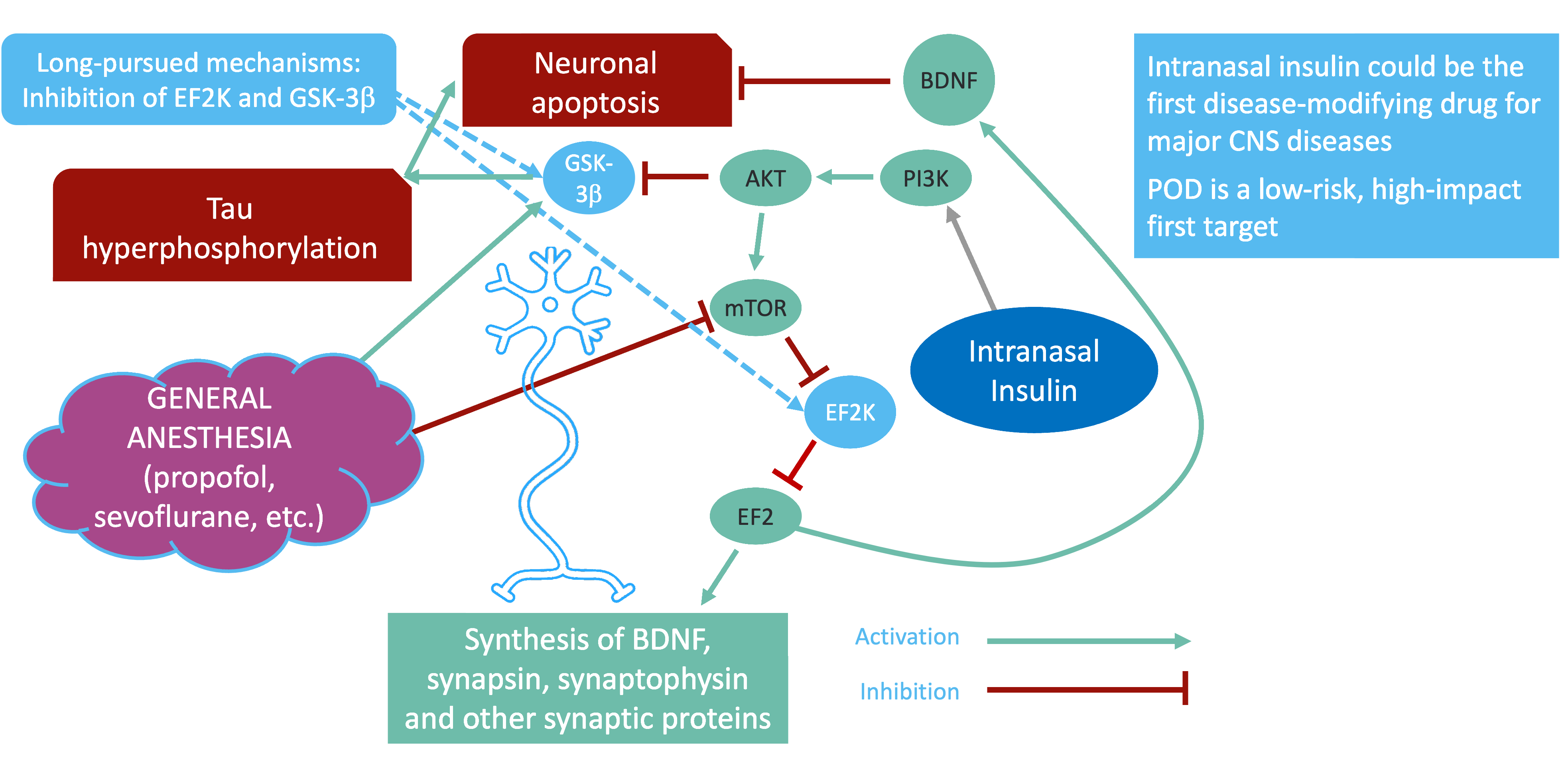Insulin: Proof of Concept (POC)
Harnessing the Power of Insulin to Combat Postoperative Delirium
Molecular Structure of Insulin

While insulin widely known is a hormone that plays a crucial role in regulating blood sugar levels, it plays a broader role in metabolism, mental health and protection against frailty. Its promise as a treatment for presenting postoperative delirium has been only recently characterized.
Postoperative delirium is a common complication following surgery, particularly in older adults. It is characterized by a state of confusion, disorientation, and changes in cognition that can occur after an operation. The exact causes of postoperative delirium are not comprehensively understood, but evidence from animal models supports several factors as contributors to its development, including: • Downregulation of mammalian/mechanistic target of rapamycin (mTOR) • Activation of GSK-3\(\beta\) (glycogen synthase kinase-3\(\beta\)) • Activation of eukaryotic elongation factor 2 kinase (eEF2K) • Reduction of presynaptic proteins such as synapsins and synaptophysin • Reduction of brain-derived neurotrophic factor (BDNF).

Disruptions in insulin signaling, such as insulin resistance or impaired insulin secretion, have been associated with cognitive impairments and an increased risk of developing CNS disorders such as Alzheimer’s disease. While the mechanism of insulin in its prevention of postoperative delirium is complex and not completely understood, a number of important clues have emerged. In part, insulin helps prevent postoperative delirium by activation of key biochemical pathways, including Akt and ERK. Downstream from Akt and ERK, insulin activity in the CNS includes: • Inhibition of important enzyme targets eEF2K and GSK-3\(\beta\). • In turn, inhibition of eEF2K increases levels of important proteins, including BDNF, synapsin and synaptophysin. • Meanwhile, inhibition of GSK-3\(\beta\) decreases neuroinflammatory processes associated with neurodegenerative diseases such as Alzheimer’s. Inhibition of GSK-3\(\beta\) also decreases the hyper-phosphorylation of tau associated with the development of neurofibrillary tangles in Alzheimer’s disease, postoperative delirium and other CNS disorders.